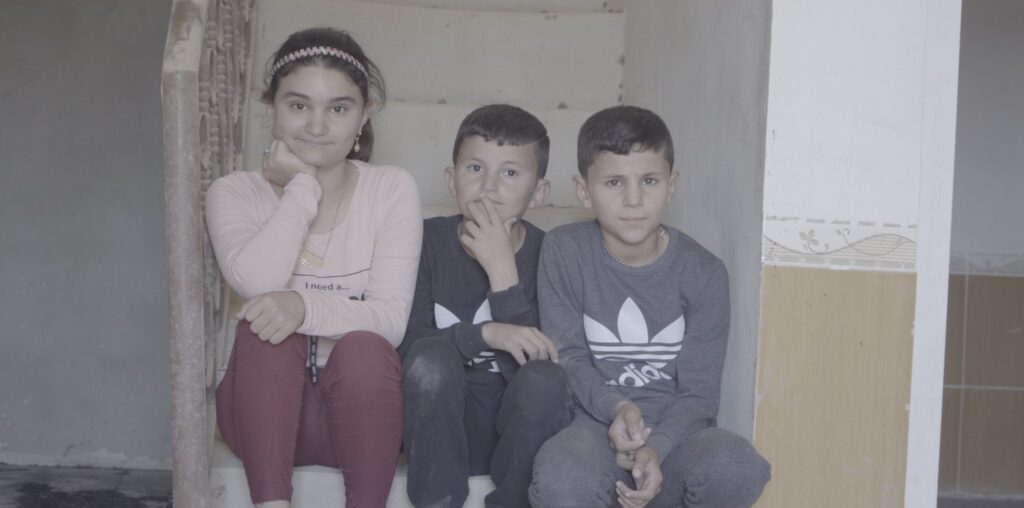
Mediha, now 19 years old, was only 10 when Daesh attacked Sinjar. She was one of the thousands of Yazidi women and children abducted by the terror group. She was separated from her parents and three younger brothers before being enslaved for three years.
During this time, she was sold to Daesh fighters several times. She was sold for the equivalent of $500. One of the buyers was a man who enslaved Mediha, Abu Yosuf. Mediha identified him from photographs of Daesh fighters collected by the Commission for Investigation and Gathering Evidence (CIGE) in the Kurdistan Region of Iraq. Having testified to CIGE, she is now pursuing justice with the hope that Abu Yosuf will be held to account.
Mediha and her two brothers were ultimately rescued. However, the whereabouts of the parents are unknown. The documentary suggests that the father may have been killed, as many Yazidi men have been. The mother may still be alive, although the attempts to find her have not been successful to date. The documentary shows the attempts to find Mediha’s youngest brother, who was sold for the equivalent of $120.
Mediha and some of her family members were lucky to be rescued. However, over 2,600 Yazidi women and children are yet to be reunited with their families. In October 2024, a Yazidi woman was rescued from Gaza, after she was abducted at the age of 11. In June 2024, a Yazidi woman was rescued from northeast Syria. In March 2024, a Yazidi woman was rescued from Daesh captivity. She was only 14 when she was abducted from her village in Shingal district.
These are only a few examples from the over 3,500 Yazidis who were rescued, including some 2,000 children. Another 2,600 Yazidi women and children are still waiting to return home, and so are their family members living in uncertainty.
Despite the work of some governments, nongovernmental organizations and rescuers, there has been no joint international effort to get the missing people back. Now 10 years later, the international community pays very little, if any, attention to the plight of the community still enduring genocide.
Similarly, the assistance provided to victims/survivors continues to decrease. Organizations such as Yazda, Free Yezidi Foundation, and Nadia’s Initiative go above and beyond to support the communities. However, as this genocide against the Yazidis is ongoing, the needs continue.
The Yazidi community require renewed international attention to end this genocide, provide comprehensive assistance to victims/survivors that is reflective of their physical, psychological and other needs, protect their future and provide guarantees of nonrecurrence of such horrific atrocities.
Documentaries such as Mediha’s can help to renew the focus on the situation and put the victims/survivors at the center.
This piece was republished from Forbes with permission.

